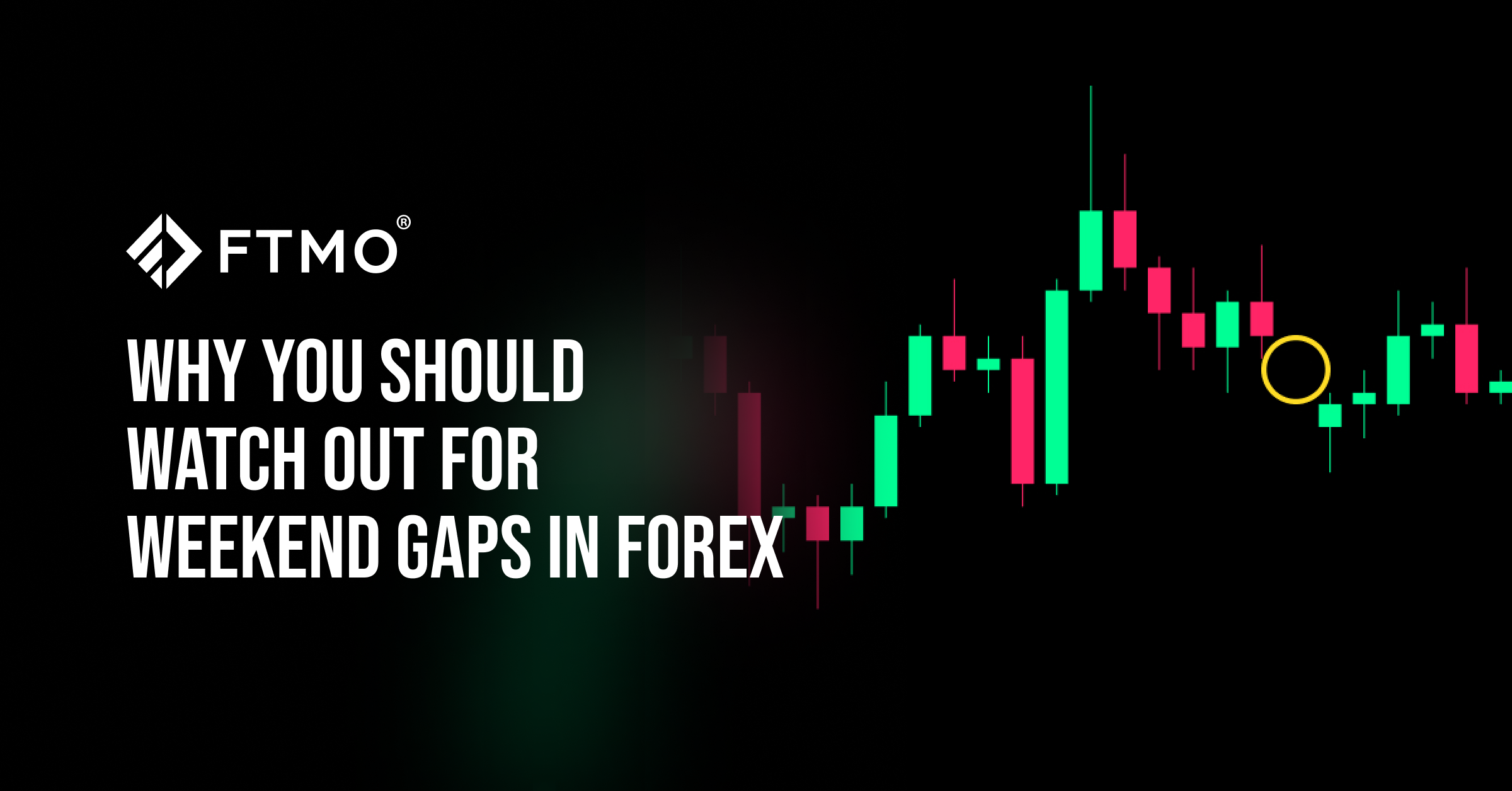
Why you should watch out for weekend gaps in forex
Gaps are not common in forex trading, but under certain conditions they can occur even in this most liquid of financial markets. Why is this the case, and why can't the average trader do anything about it?
We wrote about the occurrence of gaps, different types of gaps and how to trade them in a recent article. Gaps appear quite regularly in markets that have clearly defined trading hours, and the reasons for their occurrence are varied. In forex, which is traded from Sunday evening to Friday evening (depending on the time zone you are in) almost continuously, gaps do not occur very often, but they can occur here as well.
The gaps in forex are often driven by geopolitical events, which unfortunately do not choose whether they take place over the weekend or on a normal working day. Unexpected statements by central bankers or other influential figures, etc., can also have an impact. Traders who keep trades open over the weekend simply have to take such possibilities into account and adapt their strategy to them.
The last example that could have had a significant impact on the accounts of swing traders on Forex was the beginning of the election week in the USA, when a rather significant gap was created on practically all pairs with the US dollar. In the picture below, we can see the value of the USDJPY pair, on which a gap of around 66 pips was formed on Monday morning.

Many inexperienced traders new to forex may have been surprised by the actual size and occurrence of a gap, but given that liquidity in forex can be at minimum levels over the weekend, the risk of a gap forming, with the risk of a larger than usual loss, is much higher.
Want to trade over the weekend? Forget
Some traders may speculate after such an event about the possibility of trading forex over the weekend to be able to manage their positions, but we will probably disappoint them. Forex is a decentralized OTC (over the counter) market that has no set trading hours and liquidity is provided by large financial institutions and banks, so it is possible that some trades will take place in the interbank market over the weekend, but they are mostly interbank transactions and regular traders cannot participate.
In exceptional cases, some exchanges may be open (for example, in the Middle East, such as the Dubai Financial Market, the Tel Aviv Stock Exchange and the Saudi Exchange or Tadāwul), and some brokers may offer trading over the weekend, but such trading is so disadvantageous to the ordinary trader that it negates any advantage that might accrue.
Due to the very low activity of liquidity providers, the ability of brokerage firms to execute their clients' trades is very limited and may pose a risk to them. The absence of a counterparty due to the inactivity of liquidity providers makes it virtually impossible for a broker to manage risk effectively and one solution is to stretch spreads significantly, which can be very disadvantageous for the average trader.
In addition, the broker incurs additional costs in the case of weekend trading and is limited in its ability to perform traditional weekend maintenance. And due to the aforementioned lack of liquidity providers as counterparties, the broker is at risk of large losses in the event of a large gap, which could then be passed on to the clients themselves.
Overall, holding forex trades over the weekend is only recommended for traders who hold their positions long term and trade on large timeframes such as H4, D1 or larger and can't do much harm with market fluctuations. Swing traders who only hold positions for a few days should evaluate the pros and cons within their strategy and when the price is close to their SL before the weekend, they should close their positions before the weekend. Trade safely.
This article is for informational purposes only, and some information may not reflect the current service offering or product features. Please always verify the latest terms on the official product pages.
About FTMO
FTMO has developed a two-step evaluation process to find trading talents. Upon successful completion, you may be eligible for an FTMO Rewards Account with a balance of up to $200,000 in simulated funds. How does it work?














